12 items found
Page 1 of 1
-
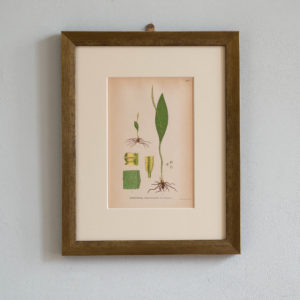
Natural History, Original Fern Prints based on the Work of Carl Lindman. ‘Ophioglossum Vulgatum’.
£220Natural History, Original Fern Prints based on the Work of Carl Lindman. ‘Ophioglossum Vulgatum’.
Carl Axel Magnus Lindman was a Swedish botanist and botanical artist, who published "Bilder ur Nordens Flora" between 1901-1905.£220 -
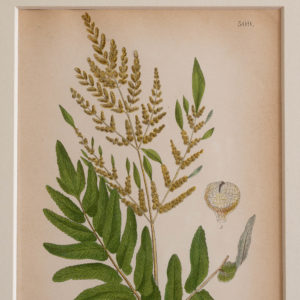
Natural History, Original Fern Prints based on the Work of Carl Lindman. ‘Osmunda Regalis.
£220Natural History, Original Fern Prints based on the Work of Carl Lindman. ‘Osmunda Regalis.
Carl Axel Magnus Lindman was a Swedish botanist and botanical artist, who published "Bilder ur Nordens Flora" between 1901-1905.£220 -
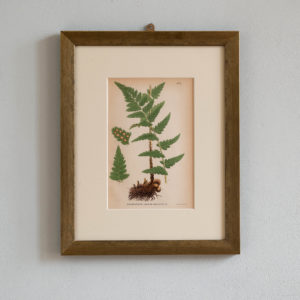
Natural History, Original Fern Prints based on the Work of Carl Lindman. ‘Aspidium Cristatum’,
£220Natural History, Original Fern Prints based on the Work of Carl Lindman. ‘Aspidium Cristatum’,
Carl Axel Magnus Lindman was a Swedish botanist and botanical artist, who published "Bilder ur Nordens Flora" between 1901-1905.£220 -
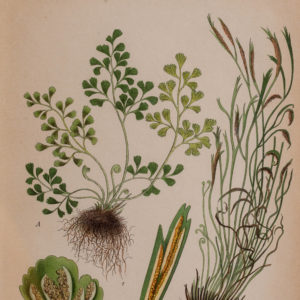
Natural History, Original Fern Prints based on the Work of Carl Lindman. ‘Asplenium Septentrionale’.
£220Natural History, Original Fern Prints based on the Work of Carl Lindman. ‘Asplenium Septentrionale’.
Carl Axel Magnus Lindman was a Swedish botanist and botanical artist, who published "Bilder ur Nordens Flora" between 1901-1905.£220 -
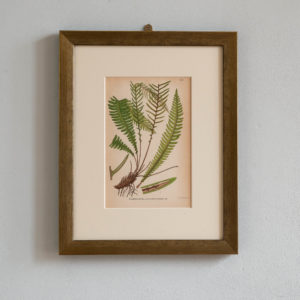
Natural History, Original Fern Prints based on the Work of Carl Lindman. ‘Blechnum Spicant’,
£220Natural History, Original Fern Prints based on the Work of Carl Lindman. ‘Blechnum Spicant’,
Carl Axel Magnus Lindman was a Swedish botanist and botanical artist, who published "Bilder ur Nordens Flora" between 1901-1905.£220 -
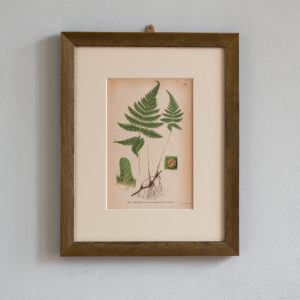
Natural History, Original Fern Prints based on the Work of Carl Lindman. ‘Aspidium Phegopteris’,
£220Natural History, Original Fern Prints based on the Work of Carl Lindman. ‘Aspidium Phegopteris’,
Carl Axel Magnus Lindman was a Swedish botanist and botanical artist, who published "Bilder ur Nordens Flora" between 1901-1905.£220 -
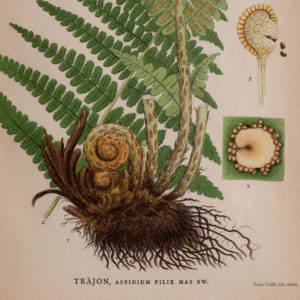
Natural History, Original Fern Prints based on the Work of Carl Lindman. ‘Aspidium Filix’,
£220Natural History, Original Fern Prints based on the Work of Carl Lindman. ‘Aspidium Filix’,
Carl Axel Magnus Lindman was a Swedish botanist and botanical artist, who published "Bilder ur Nordens Flora" between 1901-1905.£220 -
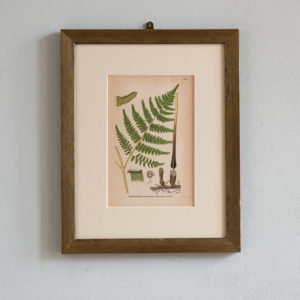
Natural History, Original Fern Prints based on the Work of Carl Lindman. ‘Pteridium Aquilinum’,
£220Natural History, Original Fern Prints based on the Work of Carl Lindman. ‘Pteridium Aquilinum’,
Carl Axel Magnus Lindman was a Swedish botanist and botanical artist, who published "Bilder ur Nordens Flora" between 1901-1905.£220 -
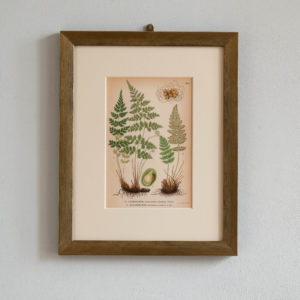
Natural History, Original Fern Prints based on the Work of Carl Lindman. ‘Woodsia Ilvensis’,
£220Natural History, Original Fern Prints based on the Work of Carl Lindman. ‘Woodsia Ilvensis’,
Carl Axel Magnus Lindman was a Swedish botanist and botanical artist, who published "Bilder ur Nordens Flora" between 1901-1905.£220 -
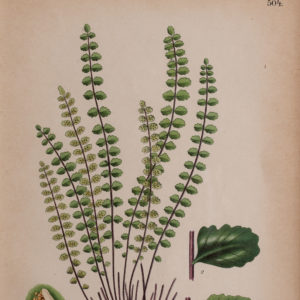
Natural History, Original Fern Prints based on the Work of Carl Lindman. ‘Asplenium Trichomanes’
£220Natural History, Original Fern Prints based on the Work of Carl Lindman. ‘Asplenium Trichomanes’
Carl Axel Magnus Lindman was a Swedish botanist and botanical artist, who published "Bilder ur Nordens Flora" between 1901-1905.£220 -
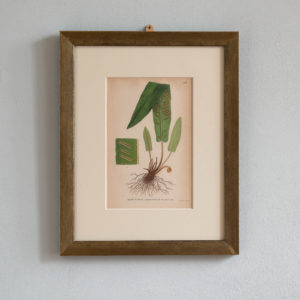
Natural History, Original Fern Prints based on the Work of Carl Lindman. ‘Scolopendrium Vulgare’,
£220Natural History, Original Fern Prints based on the Work of Carl Lindman. ‘Scolopendrium Vulgare’,
Carl Axel Magnus Lindman was a Swedish botanist and botanical artist, who published "Bilder ur Nordens Flora" between 1901-1905.£220 -
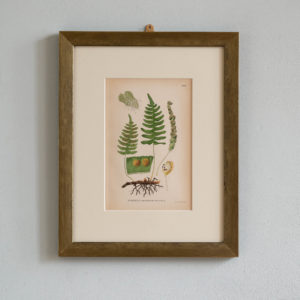
Natural History, Original Fern Prints based on the Work of Carl Lindman. ‘Polypdodium Vulgare’,
£220Natural History, Original Fern Prints based on the Work of Carl Lindman. ‘Polypdodium Vulgare’,
Carl Axel Magnus Lindman was a Swedish botanist and botanical artist, who published "Bilder ur Nordens Flora" between 1901-1905.£220
Featured Items
-

The Dance, by Henri Matisse, Jan – March 1939 / No. 4.
£1,200The Dance, by Henri Matisse, Jan – March 1939 / No. 4.
The Verve Review was a purposefully luxurious. It ran from 1937 to 1960, but with only 38 editions available, due to the high degree of design and editorial work dedicated to each issue. Each edition contained unique lithographic prints, commissioned by the editor, and each cover a double-page lithograph elaborated by one of the artists contained within. It was the brainchild of its editor Stratis Eleftheriades, a Greek National who moved to Paris in the early thirties to take part in the growing Modernist movement, writing under the name of Teriade.£1,200 -
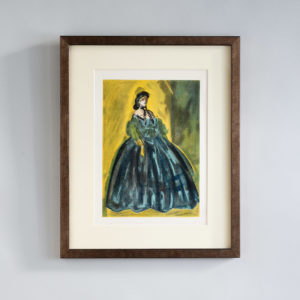
Portraits Part II by Constantin Guys, Verve Vol 2 / No. 5-6.
£500Portraits Part II by Constantin Guys, Verve Vol 2 / No. 5-6.
The Verve Review was a purposefully luxurious. It ran from 1937 to 1960, but with only 38 editions available, due to the high degree of design and editorial work dedicated to each issue. Each edition contained unique lithographic prints, commissioned by the editor, and each cover a double-page lithograph elaborated by one of the artists contained within. It was the brainchild of its editor Stratis Eleftheriades, a Greek National who moved to Paris in the early thirties to take part in the growing Modernist movement, writing under the name of Teriade.£500 -
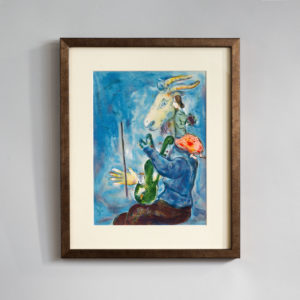
Printemps by Marc Chagall, Verve Vol. 1 / No. 3.
£800Printemps by Marc Chagall, Verve Vol. 1 / No. 3.
The Verve Review was a purposefully luxurious. It ran from 1937 to 1960, but with only 38 editions available, due to the high degree of design and editorial work dedicated to each issue. Each edition contained unique lithographic prints, commissioned by the editor, and each cover a double-page lithograph elaborated by one of the artists contained within. It was the brainchild of its editor Stratis Eleftheriades, a Greek National who moved to Paris in the early thirties to take part in the growing Modernist movement, writing under the name of Teriade.£800 -
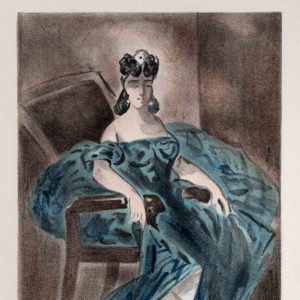
Portraits Part I by Constantin Guys, Verve Vol 2 / No. 5-6.
£500Portraits Part I by Constantin Guys, Verve Vol 2 / No. 5-6.
The Verve Review was a purposefully luxurious. It ran from 1937 to 1960, but with only 38 editions available, due to the high degree of design and editorial work dedicated to each issue. Each edition contained unique lithographic prints, commissioned by the editor, and each cover a double-page lithograph elaborated by one of the artists contained within. It was the brainchild of its editor Stratis Eleftheriades, a Greek National who moved to Paris in the early thirties to take part in the growing Modernist movement, writing under the name of Teriade.£500
